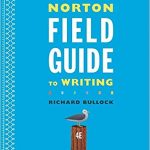Overview
 This course is an intensive introduction to college writing and to the critical thinking and research skills essential to producing effective writing. I will work to help you develop the skills and strategies needed to become a proficient writer capable of handling college level coursework. You will learn how to develop, write, research, and revise different kinds of papers, and to understand your own strengths and weaknesses as a writer. You must earn a grade of C or better to satisfy the English 105 requirement.
This course is an intensive introduction to college writing and to the critical thinking and research skills essential to producing effective writing. I will work to help you develop the skills and strategies needed to become a proficient writer capable of handling college level coursework. You will learn how to develop, write, research, and revise different kinds of papers, and to understand your own strengths and weaknesses as a writer. You must earn a grade of C or better to satisfy the English 105 requirement.
Required Materials

Course Objectives:
- An understanding that writing is a process that requires strategic reading, drafting and revising.
- The ability to analyze different rhetorical situations and demonstrate an awareness of how intended purpose and audience influence your rhetorical choices.
- Research strategies that will allow you to effectively support your claims by finding, evaluating, analyzing, integrating, and documenting sources correctly and effectively.
- The ability to produce clear, concise, and rhetorically effective sentences.
- The ability to construct a logical and well-organized essay with a clear thesis.
- The ability to consider and revise your work in substantial and meaningful ways.
Course Methods:
Writing is a process that starts with careful, active reading of texts. I will ask you to read course materials actively (this means questioning an author’s assumptions and claims and figuring out how an argument or narrative works). Your careful reading of texts will be the foundation for class conversations about these course materials. Class time will entail both large and small-group discussions, informal writing activities, peer reviews, and writing workshops. There are three major essay assignments. Each of these will undergo a substantial revision process—at least 75% of writing is revision. You are required to attend at least two (remote) individual writing conferences with me during the term.
Participation Tips, Policies, and Classroom Culture:
Attendance: Attendance is essential and required. Unless your absence is documented & excused (athletics or legitimate medical/legal emergency), class work cannot be made up. Do not work on homework for another class during mine. Consistent tardiness will lower your participation grade. It’s OK to bring food/drink, but nothing too odiferous, please.
- In-Class Discussions/Activities: Please participate enthusiastically in these! This includes contributing to class by responding to discussion questions, engaging in group work, and providing feedback in peer reviews. I expect you to be consistently prepared with readings and active in all discussions. Bring writing implements/paper to class every day.
- Preparation: Bring required materials to class, and do all of the assigned reading attentively and punctually. You can prepare to participate in class activities by completing the homework on time. If you come to class un- or under-prepared I may ask you to leave (e.g. if you did not write a complete draft, you will not be able to participate in the workshop, so I’ll ask you to leave).
- Conferences: You will have two writing conferences with me during the quarter. If you miss a conference for any reason other than dire emergency, then your paper and grade become my lowest priority. If you must re-schedule a conference, let me know one day in advance, please.
- Late Homework: I generally do not accept late homework. Assignments are due whether you are in class or not and need to be handed, not e-mailed, to me, unless prior arrangements have been made or you are directed to submit via email.
- Cell Phones / Computers: Electronic devices can be useful tools, but in a classroom context they need to be used in ways that support our course goals. Laptop computers, tablets, and portable electronic devices should only be used in ways that support our work in the classroom. Cell phones should not be disruptive to our discussion. Most of the time, I will ask you to put away cell phones (out of sight!). Occasionally, I will ask you to use your cell phone for tasks that contribute to our discussion (e.g. looking up a word in an online dictionary). Sometimes I’ll ask you to bring laptops to class for writing or research activities. Ultimately, if your technology is keeping you from being a productive member of our discourse community, I may ask you to leave and/or just mark you absent for the day.
Academic Integrity:
Plagiarism is the act of taking someone else’s words or ideas and representing them as if they were your own, without acknowledging the source (e.g. using quotation marks and properly citing the source). Plagiarism will automatically result in a zero on the assignment and could lead to failure of the course. Any outside sources must be fully acknowledged/cited. We will discuss this extensively in class. If you are ever unsure about how and when to credit a source, come talk to me in class or during office hours. The VWU honor code is available in the Student Handbook.
